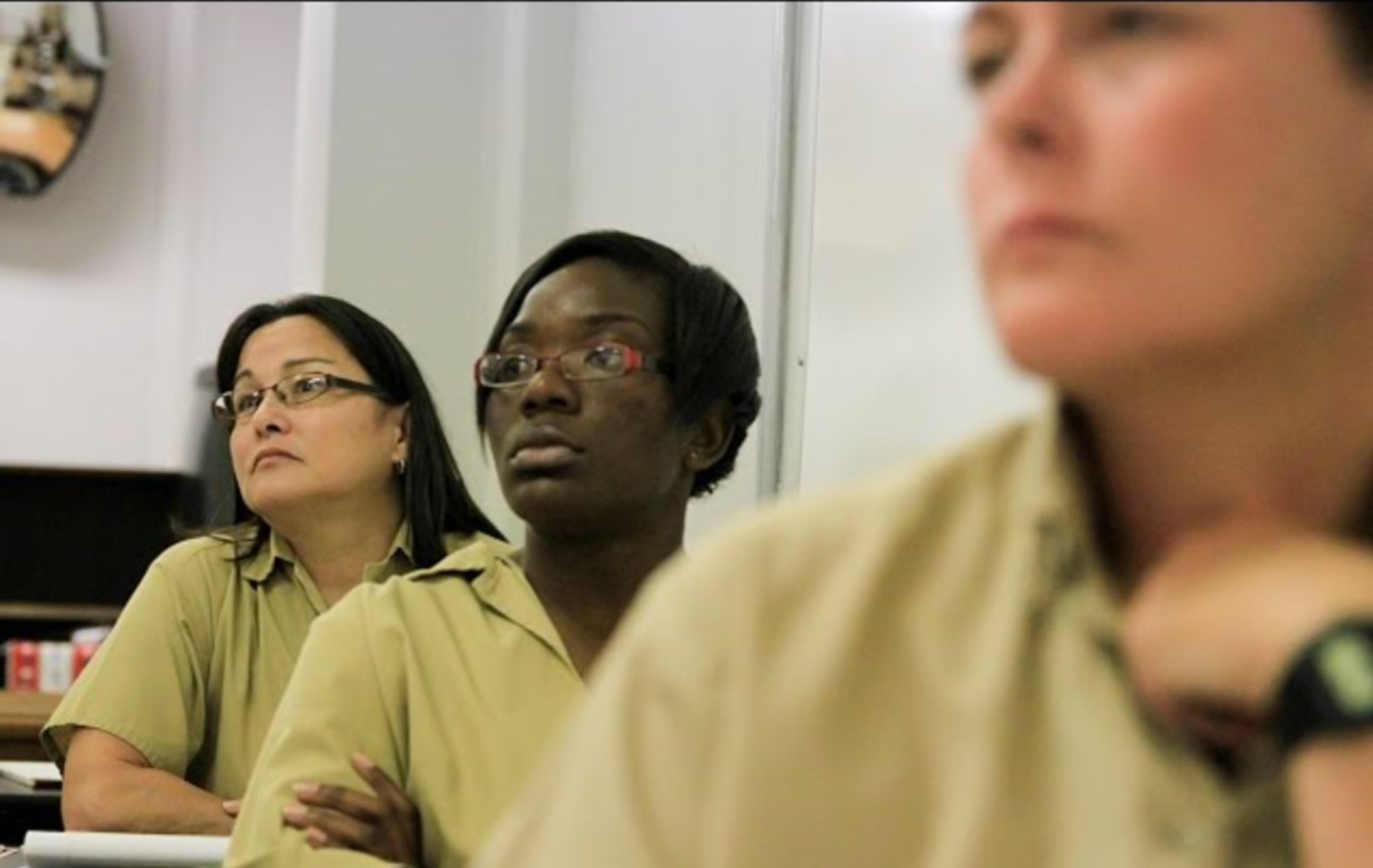
Wiser Justice provides students incarcerated in North Carolina the opportunity to earn LEED and PEER support certifications.
In North Carolina, roughly 36 percent of the state’s formerly incarcerated population end up back behind bars within two years, but education has proven to reduce recidivism. One national study shows that recidivism rates drop to less than 14 percent after earning an associate degree and as low as 5.6 percent for those who were formerly incarcerated in North Carolina who earn a bachelor’s degree.
Those may seem like cold, impersonal numbers on paper, but Meredeth Summers sees beyond the numbers and focuses on the people she and others help as part of Guilford’s Wiser Justice Program.
That’s one reason why Meredeth, Guilford’s Chief of Staff and secretary for the Board of Trustees, is so invested in the program, which brings instructors from Guilford and other higher-ed institutions to incarcerated women and men.
Wiser Justice provides courses in the fields of Business, English, Criminal Justice, Sociology, Psychology and Oppressive Systems. The five-semester program provides students with an opportunity to receive 30 college credits and to take a preparatory course for the Leadership in Energy and Environmental Design (LEED) certification exam. These credits are transferable to most schools that offer associate’s and bachelor’s degrees.
LEED is an internationally recognized green building certification system developed by the U.S. Green Building Council designed to reduce an existing or new building’s carbon footprint.
Meredeth says she’s also hoping more Guilford students and faculty might be interested in helping with the program. She says persons deprived of liberty are forever changed after the program. “I am too,” she says. “I feel like I learn so much from them versus just being their teacher. We really have an exchange of experiences and ideas in that classroom.”
Pranav Tripuraneni, a junior at The Early College of Guilford, is a volunteer in the program after a cousin back in India became incarcerated and had few educational opportunities while in prison and after his release. “When he (was released) the future was very bleak for him,” says Pranav. “I think what Wiser Justice can offer is a softer landing for inmates being released and a stronger beginning to the rest of their lives.”
Meredeth says classes are not unlike those taught at traditional colleges and universities with books and notes and assignments. They’re also discussion-based, in order to break down barriers and encourage students to share and learn from one another’s experiences, both academic and lived. Since she began teaching two years ago, it has never failed to achieve both objectives, she says.
“Guilford really is a place not just of second chances but multiple chances and sometimes people just need another chance to be part of that,” she says. “Wiser Justice gives them that chance.”
Students, staff or faculty interested in volunteering for the Wiser Justice Program can contact Ja’Maul Redmond, Interim Director of The Wiser Justice Program, at redmondja@guilford.edu.

